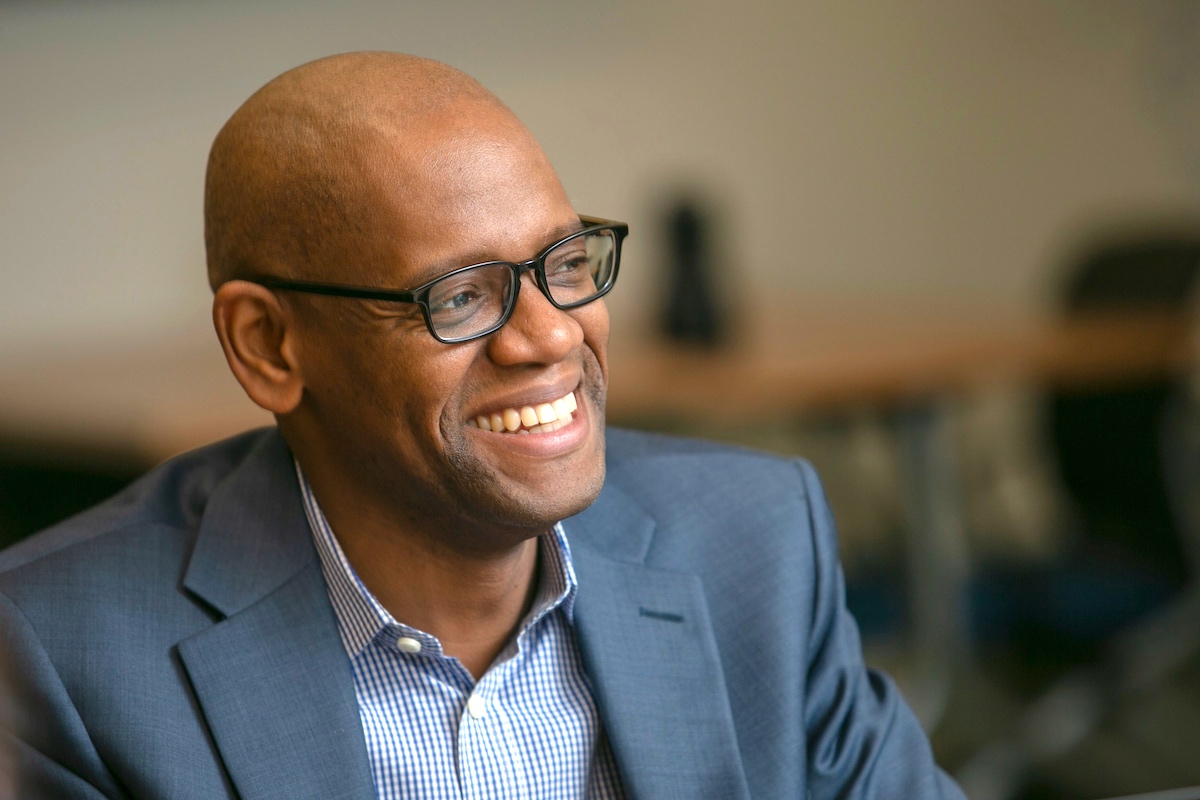Philadelphia has one of the highest flat municipal wage taxes in the United States. Business taxes are a factor that matters to current and would-be employers as they consider whether the city is the best place to run their companies.
As part of Technical.ly’s participation in the citywide Every Voice, Every Vote initiative funded by the Lenfest Institute for Journalism, we published mayoral candidates’ responses to five constituent-submitted questions ahead of the general election on Nov. 7. Read Democratic candidate Cherelle Parker’s responses here, and Republican candidate David Oh’s responses here.
I discussed the questionnaires and dug deeper into one of those constituent-submitted questions with the question asker himself, Lithero CEO Nyron Burke, during the most recent “Technically Speaking” segment on WURD’s “Reality Check” show with Tonya Pendleton.
Burke had posed this question to the candidates:
The tax code in Philadelphia creates an incentive for businesses and their employees to leave the city. What would you do to make the tax code more competitive regionally and in the northeast?
The tax code matters to employers like him as a matter of economics, he said during the WURD conversation. While the Mt. Airy resident is content to keep Lithero headquartered in University City, he realizes he could move his business across the county border to Montgomery County and save some money.
“I’m a business guy, so I think in terms of competition for customers,” he said — the customers being business owners looking for a home base. “If you think in terms of, ‘What do we want to do to make the city the best place to live and work and start a business?’ [then] you want to compare yourself to how you’re pricing your product, essentially, against your competition.”
Listen here to hear Burke further discuss his thoughts on Philadelphia’s business taxes, as well as his company’s artificial intelligence work and his advice for people who are curious about AI:
Here is Parker’s full answer to Burke’s question:
“We must reform how hard it is to do business with the city. For a new business, or an existing business that wants to make changes or grow, they have to deal with city agencies that are not at all geared toward customer service and accustomed to doing business in an antiquated way in an online and app based world. It is not an incentive to leave the city given all of the amenities that the city offers. But we need to do better by expanding the tax base to allow for a reduction in taxes. As we look at tax reform, one of the things that previous Mayors, specifically Rendell and Street, did well was tying big policies to neighborhoods and the people who live there. Tax reform is something that will require true collaboration between the Mayor’s office, Council, business and civic leaders, and with input from the community. My commitment as Mayor is that Philadelphia will be as fiscally competitive as possible.”
Here is Oh’s answer:
“The main problem with Philadelphia taxes is that they are less stable, higher and more difficult to comply with compared to competing cities. The BIRT (business income and receipts tax, formerly the Business Privilege Tax) and Wage Tax are most often cited as the key incentives for businesses and employers to leave Philadelphia. As Mayor, I would empanel a task force of experts to carefully study the best way to reduce the BIRT and Wage Tax for maximum positive result. Then, I would quickly implement the action items that a Mayor can do by Executive Order and work with Council and the State legislature to obtain the legislative changes that our city needs. I would also look at reducing business taxes by lowering and broadening the tax base to businesses making money in our city but paying little or no tax. I plan to implement zero based budgeting by my second year in office. I believe that will reduce government waste and inefficiency. I will also seek the return of local control of the Philadelphia Parking Authority through the reinstatement of a Cooperation Agreement. I estimate that would bring $40 to $50 million to our Schools on an annual basis.”
And here’s more on what they think about the city’s wage tax, via a recent Philadelphia Inquirer interview.







